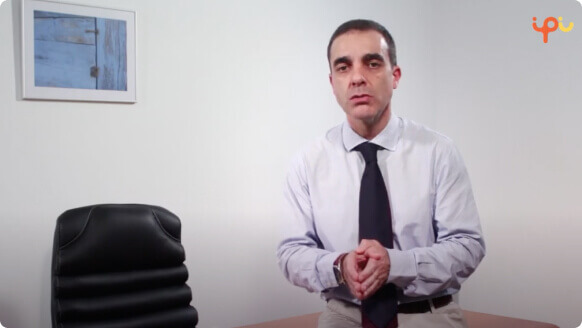Prostate laser for BPH
A new and innovative technology with very positive results in treating patients with benign prostate hyperplasia.


Dr. José Santos Dias, a specialist in prostate pathologies, explains prostate laser surgery for treating BPH.
What does Prostate Laser Surgery Involve?
Laser treatment is a new and innovative technology with very positive results in treating patients with benign prostate hyperplasia (BPH). It is a very effective and safe procedure.
No incisions are made in the skin. Large prostates can be treated thus avoiding open surgery. It also allows retrieval of prostate tissue for histological assessment unlike the first lasers used.
The main benefits are:
- Lower risk of complications such as haemorrhages (very important in patients with cardiovascular or cerebrovascular problems);
- Quicker removal of the catheter, shorter hospital stays and faster return to normal life
Laser surgery reduces BPH symptoms such as the frequent need to urinate, the need to urinate often at night, the sudden urge to urinate, a weak jet, slow (prolonged) urination and difficulty starting urinating. It also reduces the risk of complications such as urinary tract infections and urinary retention.
Advantages of Prostate Laser Surgery
The main benefits of prostate laser surgery are:

Lower risk of complications such as haemorraghing (very important in patients with cardiovascular or cerebrovascular problems)

Quicker removal of the catheter, shorter hospital stays and faster return to normal life
What is the Procedure for Prostate Laser Surgery?
Prostate laser surgery allows removal of the excess prostate tissue, eliminating the obstruction that causes the typical symptoms of this disease.
The procedure is performed through the urethra without incisions or loss of blood. The laser is passed through a scope and delivers energy via special fibre optics that destroys the prostate’s excess tissue.
Laser treatment also allows large prostates to be treated which until now could only be done by open surgery through the abdominal wall.
The length of the procedure depends on the technique and laser used but does not usually last longer than 1 hour. However, various types of laser and techniques exist that work differently and take varying amounts of time.
With some lasers, there is no need to stop anticoagulant or antiaggregant medication. Other procedures that are essential after classical prostate resection surgery – such as continual post-operative bladder washouts – are very often unnecessary after this type of procedure, thus reducing the risk of complications and hospitalisation time.
Want to know more about this treatment?
What is the Post-Treatment Like?
Patients can usually return home the day after surgery. If any urination problems occur, a temporary catheter may be inserted to help eliminate the urine and drain the bladder.
When the patient is discharged from hospital, they are given a series of instructions by their doctor. The recovery time depends on following these instructions, but a full recovery usually takes 2–4 weeks.
The first post-operative consultation occurs at this time. In the first year after treatment, on average the patient has a further three consultations.
After the first year, the patient is normally observed once a year to assess their well-being, quality of life and possible symptoms, and for PSA monitoring.
After the laser procedure, a significant improvement is seen with a relieving of the urinary symptoms. In the first weeks, however, some burning and frequent urination may occur resulting from the use of the high-energy laser (which stimulates the local nerve endings) and also because the bladder continues to behave for some time as if the obstruction to emptying still exists.
The bladder’s function and control is gradually recovered. In many cases, these issues do not even occur.

Dr. José Santos Dias
Clinical Director of the Instituto da Próstata
- Graduated from the Faculty of Medicine at the University of Lisbon
- Specialist in Urology
- Fellow of the European Board of Urology
- Author of the books "Tudo o que sempre quis saber Sobre Próstata", "Urologia fundamental na Prática Clínica", "Urologia em 10 minutos","Casos Clínicos de Urologia" and "Protocolos de Urgência em Urologia"







FAQs about Prostate Laser Surgery
How is prostate laser surgery performed?
Are urinary symptoms reduced after laser treatment?
What are the benefits of prostate laser surgery?
Is the patient provided with follow-up?
References
- DIAS, José Santos. Urologia Fundamental: na prática clínica. Lisboa: Lidel - Edições Técnicas, Lda, 2010.
- DIAS, José Santos. Tudo o que sempre quis saber sobre a Próstata. Lisboa: Lidel - Edições Técnicas, Lda, 2014.
- Prostate laser surgery - https://www.mayoclinic.org/tests-procedures/prostate-laser-surgery/about/pac-20384874
- How is an enlarged prostate treated? - https://prostatecanceruk.org/prostate-information/further-help/enlarged-prostate/enlarged-prostate-treatment
- Benign Prostatic Hyperplasia (BPH) - https://www.hopkinsmedicine.org/health/conditions-and-diseases/benign-prostatic-hyperplasia-bph
- GreenLight laser prostatectomy - https://www.kch.nhs.uk/Doc/pl%20-%20134.3%20-%20greenlight%20laser%20prostatectomy.pdf
- Prostate laser surgery (Green light laser, day surgery) - https://www.vaasankeskussairaala.fi/en/for-patients/treatment-and-examinations/operations/day-surgery/urology/prostate-laser-surgery-green-light-laser-day-surgery/
- Procedural Treatment for Benign Prostatic Hyperplasia - https://www.nm.org/conditions-and-care-areas/urology/benign-prostatic-hyperplasia/procedures?_ga=2.133165575.863224434.1588260269-887629083.1588260269




